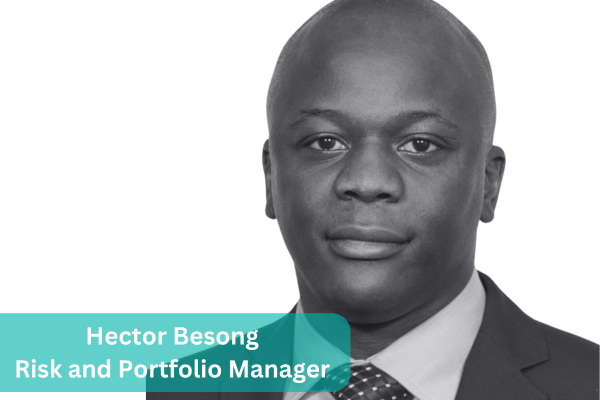Financing the missing middle: interview with Hector Besong
Hector joined the CFC in 2016 as Risk and Portfolio Manager to support our transition into an impact investing organisation that drives positive social, economic and environmental impact. We caught up with him to discuss the CFC’s vital role in financing agri-SMEs, its approach to risk and his experience in the development sector.
How did you become interested in impact investing?
My journey into impact investing began during my university studies when I secured an internship with the United Nations Environment Programme. Working within the Global Environment Facility, I was involved in financing projects aimed at fostering positive environmental outcomes. Though the term ‘impact investing’ wasn’t commonplace at the time, that’s precisely what I was engaged in.
It was during this experience that I realised my passion for development finance, particularly in Africa, where investment in infrastructure could yield transformative results.
Was that ability to make an impact why you joined the CFC?
Absolutely yes. I spent ten years in a large corporation working on international infrastructure financing. During that time, it became obvious that there was a huge need to bridge the funding gap for SMEs in developing countries, to enable them to grow and amplify their impact. The CFC is bridging this gap which is why I was keen to join.
Why is the CFC’s role as an investor so important right now?
Currently, there’s a notable deficit of investment funds targeting what we term the ‘missing middle’ in developing nations. These are enterprises that fall slightly beyond the scope of microfinance institutions yet remain too small to attract attention from major development finance institutions.
The CFC’s mandate perfectly aligns with addressing this gap, making it instrumental in effecting change at the SME level. Furthermore, for SMEs operating within agricultural value chains, securing financing poses even greater challenges due to their association with crop cycles, which inherently carry risks. Additionally, these SMEs are still in the process of maturing as businesses and are often perceived as carrying higher risks.
Nonetheless, these very enterprises are pivotal in driving economic growth and thus require accessible and affordable financing to thrive.
How does your role contribute to the CFC’s mission?
My responsibilities revolve around evaluating and managing risks associated with CFC SME loans, ensuring accurate risk assessment and pricing. This entails adhering to a structured framework for risk evaluation before determining loan terms that strike a balance between affordability for the business and reflecting the risk taken by the CFC.
Maintaining the sustainability of our capital is a top priority, as we aim to operate as an evergreen fund. Therefore, precise pricing is crucial to adequately cover potential losses and sustain a stable portfolio that continues to drive impactful change.
Why is this model effective for impact investment?
The combination of disciplined lending practices and our careful selection criteria, aimed at identifying entrepreneurs with sound business models and strong leadership, significantly enhances our potential for fostering sustainable growth. We seek out companies and entrepreneurs who possess the financial stability necessary to generate lasting economic benefits, ensuring they serve as dependable, long-term allies for the smallholder farmers they assist.
Our capacity to maintain a long-term perspective and provide unwavering support to our investees during challenging economic cycles is pivotal to the success of the impact investment model.
Which investments are you particularly proud of?
So many! The greatest part of this job is getting to know the businesses and entrepreneurs we support and seeing the positive impact of our investments.
It’s hard to pick out one. But last year I visited a rice miller, Coumba Nor Thiam, in the Senegal River Valley, a region at the heart of the nation’s rice production. Under the leadership of its founder, the company has emerged as one of the country’s foremost millers, overseeing more than 500 hectares of land and managing thousands more.
Through close collaboration with numerous smallholder farmers in the region, they provide essential services and resources, including seeds, fertiliser inputs, ploughing and irrigation services, and combine harvesters. Additionally, they facilitate a reliable off-take for the farmers’ rice, enabling smallholder producers to access broader national markets.
These endeavours bring about real transformations in the lives of farmers. During my visit, I had the privilege of talking to a farmer who now manages 50 hectares of land. He exuded refreshing optimism about the future. This is a powerful testament to the profound impact of creating economic opportunities, in terms of nurturing aspirations and bolstering prosperity.
Are you optimistic about the next few years in impact investing?
Absolutely! Development follows a natural trajectory, and our collaboration with agri-SMEs such as Coumba Nor Thiam exemplifies the potential for meaningful change. This underscores the importance of our continued efforts to invest in viable businesses.
Certainly, challenges are inevitable in development finance. However, it’s overcoming these obstacles that makes the journey so fulfilling.
To find out more about Hector’s role and the CFC’s work, connect with him on LinkedIn.

